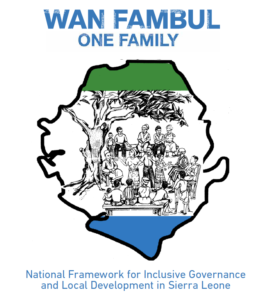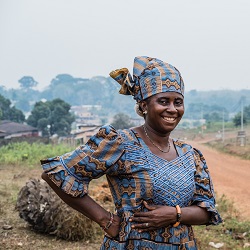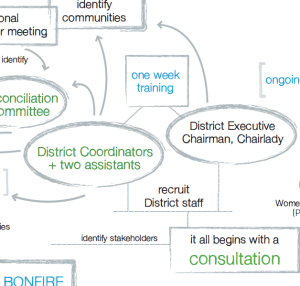Inclusivity is one of our core values. We believe that for peacebuilding and development to be broadly impactful and sustainable, the collective voice of local populations must be cultivated and connected with people in positions to help communities implement their vision and amplify their voices.
When we began our work in Sierra Leone in 2007, Catalyst for Peace and Fambul Tok co-created an approach that invited locally-owned and -led reconciliation to help communities heal after the civil war. We built inclusivity into that approach, starting with reconciliation committees, the community-based structures that envisioned and planned the ceremonies of truth-telling, apology, and forgiveness. Reconciliation committee members were chosen by communities themselves with guidelines that ensured diversity and the demonstrated ability to listen to and represent diverse community voices.
Our work has grown and changed with the needs of communities. Women who participated in the Fambul Tok reconciliation process told us that they had suffered uniquely during the war, and they wanted a space to come together as women, to discuss their needs and find ways to work together for their communities. Their determination birthed the Peace Mothers program and contributed to our ongoing focus on women’s leadership.
When Ebola arrived in Sierra Leone, communities with Fambul Tok reconciliation structures were uniquely positioned to help bridge the gap between local voices and needs and the national and international aid response. We saw that the leadership structures we had built could address new moments of crisis as well as long-term development and governance in ways that are inclusive and community-centered.
After Ebola, we tested this conviction by piloting the People’s Planning Process in three districts, expanding the work of reconciliation to development and addressing the gaps between the village, section, district, and national and international levels. The results were so powerful that the approach has become the foundation of the Government of Sierra Leone’s national development policy framework, the Wan Fambul National Framework for Inclusive Governance and Local Development. With the WFNF, Sierra Leone has become a pioneer, taking a lead globally in putting people and communities in the center and at the helm of peace and development.



